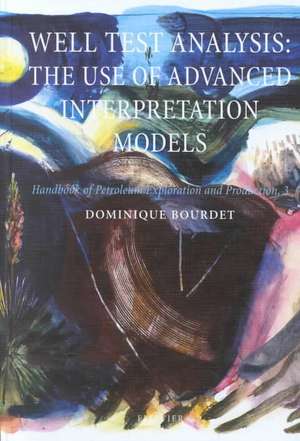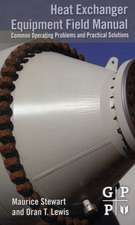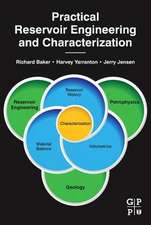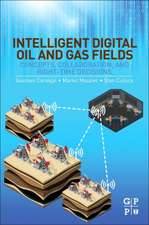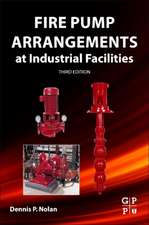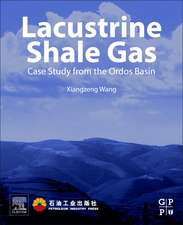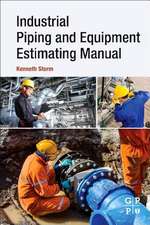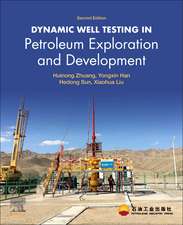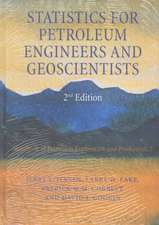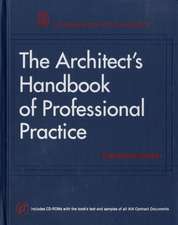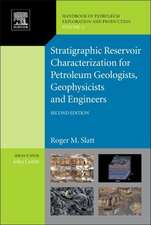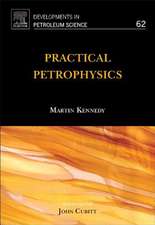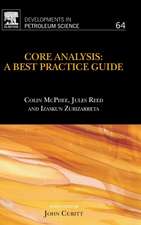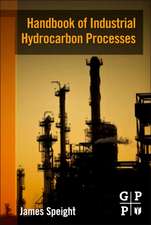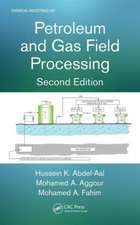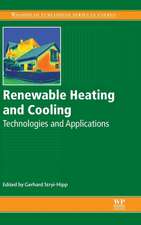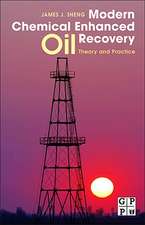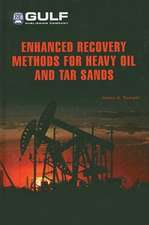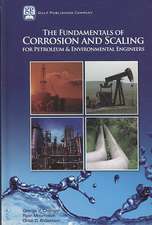Well Test Analysis: The use of Advanced Interpretation Models: Handbook of Petroleum Exploration and Production, cartea 3
Autor Dominique Bourdeten Limba Engleză Hardback – 20 aug 2002
Preț: 1191.30 lei
Preț vechi: 1631.91 lei
-27% Nou
Puncte Express: 1787
Preț estimativ în valută:
227.96€ • 243.76$ • 190.06£
227.96€ • 243.76$ • 190.06£
Carte tipărită la comandă
Livrare economică 18 aprilie-02 mai
Preluare comenzi: 021 569.72.76
Specificații
ISBN-13: 9780444509680
ISBN-10: 0444509682
Pagini: 438
Ilustrații: 1
Dimensiuni: 165 x 240 x 34 mm
Greutate: 0.95 kg
Editura: ELSEVIER SCIENCE
Seria Handbook of Petroleum Exploration and Production
ISBN-10: 0444509682
Pagini: 438
Ilustrații: 1
Dimensiuni: 165 x 240 x 34 mm
Greutate: 0.95 kg
Editura: ELSEVIER SCIENCE
Seria Handbook of Petroleum Exploration and Production
Cuprins
Preface. 1. Principles of Transient Testing. 1.1 Introduction. 1.2 Typical flow regimes. 1.3 Well and reservoir characterization. 2. The Analysis Methods. 2.1 Log-log scale. 2.2 Pressure curves analysis. 2.3 Pressure derivative. 2.4 The analysis scales. 3. Wellbore Conditions. 3.1 Well with wellbore storage and skin. 3.2 Infinite conductivity or uniform flux vertical fracture. 3.3 Finite conductivity vertical fracture. 3.4 Well in partial penetration. 3.5 Slanted well. 3.6 Horizontal well. 3.7 Skin factors. 4. Effect of Reservoir Heterogeneities on Well Responses. 4.1 Fissured reservoirs. 4.2 Layered reservoirs with or without crossflow. 4.3 Composite reservoirs. 4.4 Combined reservoir heterogeneities. 5. Effect of Reservoir Boundaries on Well Responses. 5.1 Single sealing fault in a homogeneous reservoir. 5.2 Two parallel sealing faults in homogeneous reservoir. 5.3 Two intersecting sealing faults in homogeneous reservoir. 5.4 Closed homogeneous reservoir. 5.5 Constant pressure boundary. 5.6 Communicating fault. 5.7 Effect of boundaries in double porosity reservoirs. 5.8 Effect of boundaries in double permeability reservoirs. 5.9 Effect of boundaries in composite reservoirs. 5.10 Other boundary configurations. 5.11 Conclusion. 6. Multiple Well Testing. 6.1 Interference tests in reservoirs with homogeneous behavior. 6.2 Factors complicating interference tests in reservoirs with homogeneous behavior. 6.3 Interference tests in composite reservoirs. 6.4 Interference tests in double porosity reservoirs. 6.5 Interference tests in layered reservoirs. 6.6 Pulse testing. 6.7 Conclusion. 7. Application to Gas Reservoirs. 7.1 Description of gas wells pressure behavior. 7.2 Practical transient analysis of gas welltests. 7.3 Deliverability tests. 7.4 Field example. 8. Application to Multiphase Reservoirs. 8.1 Perrine's method. 8.2 Pseudo-pressure method. 8.3 Pressure squared method. 9. Special Tests. 9.1 DST. 9.2 Impulse test. 9.3 Constant pressure test, and rate decline analysis. 9.4 Vertical interference test. 10. Practical Aspects of Well Test Interpretation. 10.1 Factors complicating well test analysis. 10.2 Interpretation procedure. 10.3 Well and reservoir characterisation- interpretation results. Appendix 1. Summary of Usual Log-Log Responses. Appendix 2. Practical Metric System of Units. Nomenclature. References. Author Index. Subject Index.
